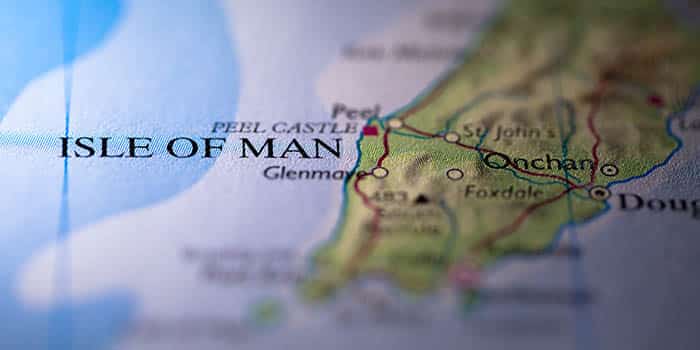- Casino
- By State
- Alabama
- Alaska
- Arizona
- Arkansas
- California
- Colorado
- Connecticut
- Delaware
- Georgia
- Florida
- Hawaii
- Idaho
- Illinois
- Indiana
- Iowa
- Kansas
- Kentucky
- Louisiana
- Maine
- Massachusetts
- Maryland
- Michigan
- Minnesota
- Mississippi
- Missouri
- Montana
- Nebraska
- Nevada
- New Hampshire
- New Jersey
- New Mexico
- New York
- North Carolina
- North Dakota
- Ohio
- Oklahoma
- Oregon
- Pennsylvania
- Rhode Island
- South Carolina
- South Dakota
- Tennessee
- Texas
- Utah
- Vermont
- Virginia
- Washington
- West Virginia
- Wisconsin
- Wyoming
- By State
- Slots
- Poker
- Sports
- Esports
Fact-checked by Velimir Velichkov
Estonia’s Gambling Law Amendments Won’t Include Stricter Rules
Estonia’s Ministry of Finance is getting ready to propose amendments to the Gambling Act by mid-year, focusing on online game mechanics, self-exclusion policies, and advertising regulations

Estonia’s Ministry of Finance is preparing amendments to the country’s Gambling Act, with a draft expected to be presented for feedback by mid-year.
Despite the proposed changes, officials have made it clear that the revisions initiated this month and ending in April will not impose stricter gambling laws.
Rainer Osanik Confirmed Draft Implementation by Mid-June
The amendments are being developed under the leadership of Rainer Osanik, head of financial policies and intelligence.
While briefing the Economic Affairs Committee of the Estonian parliament, Osanik confirmed that the draft would be ready by June, with implementation targeted for the first half of 2026.
The focus of the amendments will include a review of online game mechanics, particularly in-play features and incentive structures.
The review was triggered by concerns expressed by Committee Chairman Jaak Aab, who cited research indicating a rise in “pre-addiction phases” among gamblers.
The announced reform will also tackle the country’s national self-exclusion program, HAMPI, which the Ministry of Finance plans to broaden to enable family members to request that their relatives be added to the exclusion list.
At the moment, self-exclusion in Estonia is done voluntarily. However, the Ministry is also considering court-mandated exclusions despite concerned voices arguing the legal process could discourage individuals from seeking help.
“A gambling tax is a vital contribution to Estonian sports and culture. Tightening the rules may serve to reduce the number of operators and, consequently, reduce tax revenues. The stance has been to clarify rather than restrict regulations,” explained Osanik.
No Changes on Loot Boxes and Taxation
Despite growing concerns about youth gambling, Osanik stated that his current mandate does not include addressing loot boxes or in-game virtual currency purchases.
The European country already enforces a minimum gambling age of 21 for online players. However, brick-and-mortar casinos do not have a minimum age limit for poker and other skill games.
Regarding taxation, no further increases are planned following last year’s adjustments, which saw remote gambling taxes, Toto taxes, and games of chance tournament taxes go up from 5% to 6%. The same adjustments led to the lottery sales tax rising from 18% to 22%.
Osanik noted that the Ministry will continue evaluating feedback on these tax changes.
No Renewed Efforts to Ban Gambling Ads
A renewed effort to ban gambling advertisements appears unlikely. The coalition government, which comprises the Reform Party, Social Democrats, and Eesti 200, previously attempted to outlaw gambling ads on TV and radio, but opposition blocked the proposal.
The Economic Affairs Committee revisited the topic, but Osanik explained that they would solely focus on clarifying ad regulations and banning misleading claims.
Meanwhile, in Latvia, Riga’s city council is busy developing new regulations that would significantly limit land-based gambling venues by confining these establishments to specially designated areas.
Following suit, neighboring Lithuania submitted a proposal aimed at online gambling platform regulations to the European Commission, emphasizing new rules for game controls, IT security, data management, and technical compliance.
Last month, the country that is seeking to increase the legal age of gambling to 21 increased its efforts to fight against illegal gambling by updating important regulations.
Related Topics:
After finishing her master's in publishing and writing, Melanie began her career as an online editor for a large gaming blog and has now transitioned over towards the iGaming industry. She helps to ensure that our news pieces are written to the highest standard possible under the guidance of senior management.
Must Read
More Articles



Industry
July 8, 2025
Trump’s Gambling Tax Cap Draws Divided Opinions

Industry
July 6, 2025
Macau Contemplates Axing Gambling Ads















